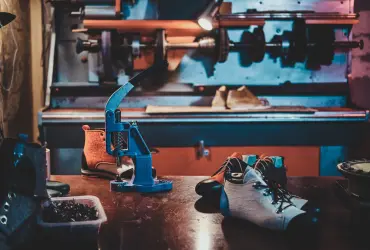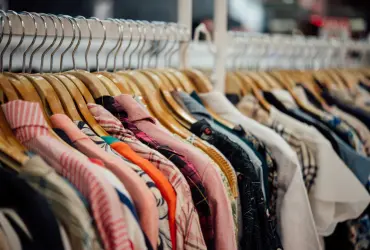Turn All Business Travel Into a Holiday
with a Team That Understands
What You Need
Upcoming Trade Shows in for Clothing

European Bridal Week 2026, Düsseldorf, Germany
28 - 30 Mar 2026

Texprocess 2026, Frankfurt am Main, Germany
21 - 24 Apr 2026

Expo Riva Schuh 2026, Riva Del Garda, Italy
13 - 16 Jun 2026

Pitti Immagine Uomo 2026, Florence, Italy
16 - 19 Jun 2026

Pitti Immagine Bimbo 2026, Florence, Italy
24 - 25 Jun 2026

Pitti Immagine Filati 2026, Florence, Italy
24 - 26 Jun 2026

DFD Dusseldorf 2026, Düsseldorf, Germany
22 - 29 Jul 2026

Texworld Paris 2026, Paris, France
31 Aug - 2 Sep 2026

Who's Next 2026, Paris, France
5 - 7 Sep 2026

Interfiliere 2026, Paris, France
5 - 7 Sep 2026

Heimtextil 2027, Frankfurt am Main, Germany
12 - 15 Jan 2027

TV TecStyle Visions 2027, Stuttgart, Germany
3 - 5 Feb 2027

YIWU KNITTING PRODUCTS, Yiwu, China
Coming soon

YIWU FAIR, Yiwu, China
Coming soon
In the ever-evolving landscape of fashion and clothing, sustainability is perhaps the biggest trend and buzzword to emerge over the past five years – a mega-trend with the potential to fundamentally re-shape the industry’s future. Gone are the days when organic cotton alone could claim a brand as sustainable; today’s consumers demand a holistic approach encompassing carbon footprint, climate neutrality and even climate positivity. Serious conversations take place on how to make clothing manufacturing sustainable and the end goal remains achieving a true circular economy.
Some brands are leading the charge toward sustainable practices. Initiatives like On’s subscription sneaker Cyclon and collaborations like Bergans of Norway with Spinnova exemplify endeavors toward circularity. However, these efforts remain largely experimental, highlighting the challenges in creating functioning product cycles and recyclable products. Addressing the complexities of the circular economy involves aligning the entire value chain from production to disposal. The emphasis is not only on incorporating recycled materials but ensuring that the end product is itself recyclable. This requires designs that use mono-material or enable easy separation of individual components. The outdoor sector, known for synthetic materials, faces unique challenges, but the industry is gearing up to meet the upcoming legal requirements for recycling processes.
As the fashion realm pivots towards sustainability, an increasing number of consumers and brands are embracing alternative consumption models. The second-hand market, set to double to 34 billion euros by 2025, has become the preferred method of slowing down fast fashion. Household brands like The North Face, Vaude, H&M and Zalando are integrating second-hand offerings alongside their regular collections. Rental services have also gained traction in 2023. Consumers now have the opportunity to use, rather than own, products ranging from luxury fashion to skiwear and outdoor equipment. This trend, especially appealing to Gen Z, aligns with the ethos of reducing unnecessary resource consumption.
GET A FREE QUOTE
Looking for a hotel accommodation for particular trade show or exhibition.
Send us a general enquiry and we will find the best options for you
Send us a general enquiry and we will find the best options for you
